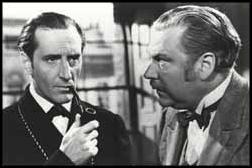National security conservatives coming home?
Posted by Kelsey Hartigan
Throughout the day, key Republican figures have signaled that they will likely join Sen. Lugar (R-IN) in supporting New START, which has the full backing of our military leadership. Countless military and national security leaders have urged the Senate to ratify New START before the end of the year. GOP luminaries like Henry Kissinger, Colin Powell, Brent Scowcroft, George Shultz, Jim Baker and Jim Schlesinger have all fully endorsed the treaty and urged their fellow Republicans to do the same. Numerous conservative commentators have also called upon Republican Senators to ratify New START. Sen. Lugar lambasted members of his own party, urging them to put aside politics and do what is clearly needed to protect America’s national security interests. "Every senator has an obligation in the national security interest to take a stand, to do his or her duty. Maybe people would prefer not to do his or her duty right now," he said. "Sometimes when you prefer not to vote, you attempt to find reasons not to vote," Lugar told The Cable. "I'm advising that the treaty should come on the floor so people will have to vote aye or nay," he said. "I think when it finally comes down to it, we have sufficient number or senators who do have a sense of our national security. This is the time, this is the priority. Do it."
Faced with the choice between respecting the advice of our most respected military and national security leaders and playing politics—it seems a few Republican Senators are starting to come around.
Sen. John McCain (R-AZ) told George Stephanopoulos this morning on GMA that there is still time to ratify New START before the end of the year. “I believe we can move forward with the START treaty and satisfy Sen. Kyl’s concerns and mine about missile defense and others,” McCain said, adding that Democrats are addressing Kyl’s concerns in active negotiations.
Sen. Bob Corker (R-TN), one of the Foreign Relations Committee members who voted in favor of the treaty in September, said Tuesday that administration officials responded late Monday night to several matters raised by Kyl and himself about modernization of the remaining nuclear arsenal and sufficient funds for safeguarding the stockpile. "I thought they did a good job. I think it's continuing to evolve in a good way as it relates to modernization," Corker said in an interview. He later added, "Could we finish? I think it's possible that we could."
Sen. George Voinovich (R-OH) is now “leaning toward its ratification – and wants a vote this year,” the Wall Street Journal reported today. “There seems to be a lot of coming together there and a lot more comfort [with the treaty] among our friends and allies in Europe,” Sen. Voinovich said. “I think I’d be supportive.” Earlier this morning, Sen. Voinovich also noted, "I'd like to get it done, but in my conscience I want to feel it's the right thing to do."
Sen. Mark Kirk (R-IL), the newly seated senator from Illinois, was asked about Russian President Dmitry Medvedev's warning that a new arms race will erupt if Russian can't agree with the West about a joint European missile defense program. "I'm open-minded and this is one of the issues I'll raise with the State Department briefing teams coming up to talk to me," he said.

 This Wikileaks mess is a disaster, a huge setback for and distraction from serious national security challenges, and Bradley Manning has a lot to answer for. Meanwhile, anyone else noticed the difference between this week's focus on the steady diplomatic grind involved in foreign policy versus the spitball-throwing that passes for FP debate most of the time? The structure of the situation doesn't give much room to bash the current administration. It's pretty to hard to slam Obama when its his policy that's been undermined by the leaks.
This Wikileaks mess is a disaster, a huge setback for and distraction from serious national security challenges, and Bradley Manning has a lot to answer for. Meanwhile, anyone else noticed the difference between this week's focus on the steady diplomatic grind involved in foreign policy versus the spitball-throwing that passes for FP debate most of the time? The structure of the situation doesn't give much room to bash the current administration. It's pretty to hard to slam Obama when its his policy that's been undermined by the leaks.